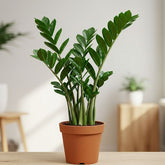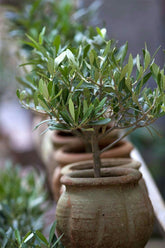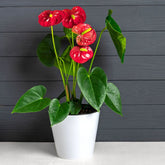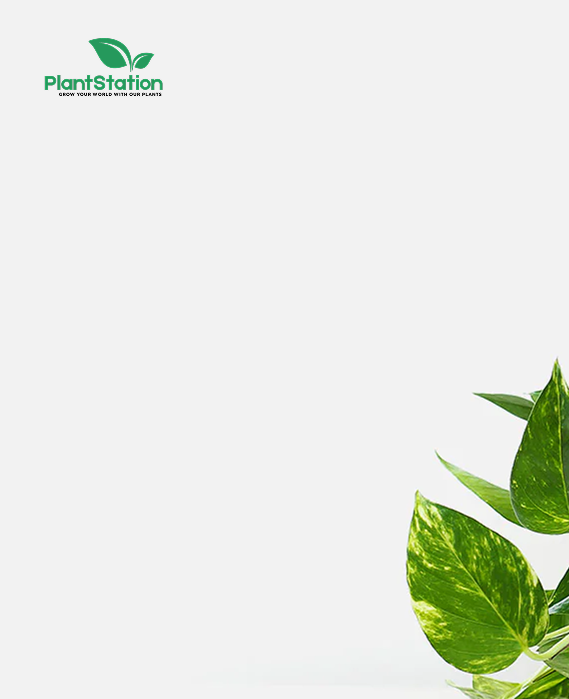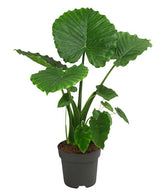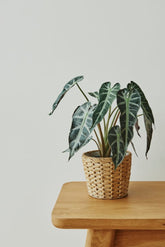Call Us +971 55 174 0095
Plantshop, Landscaping, Gardening & Plant Care Services
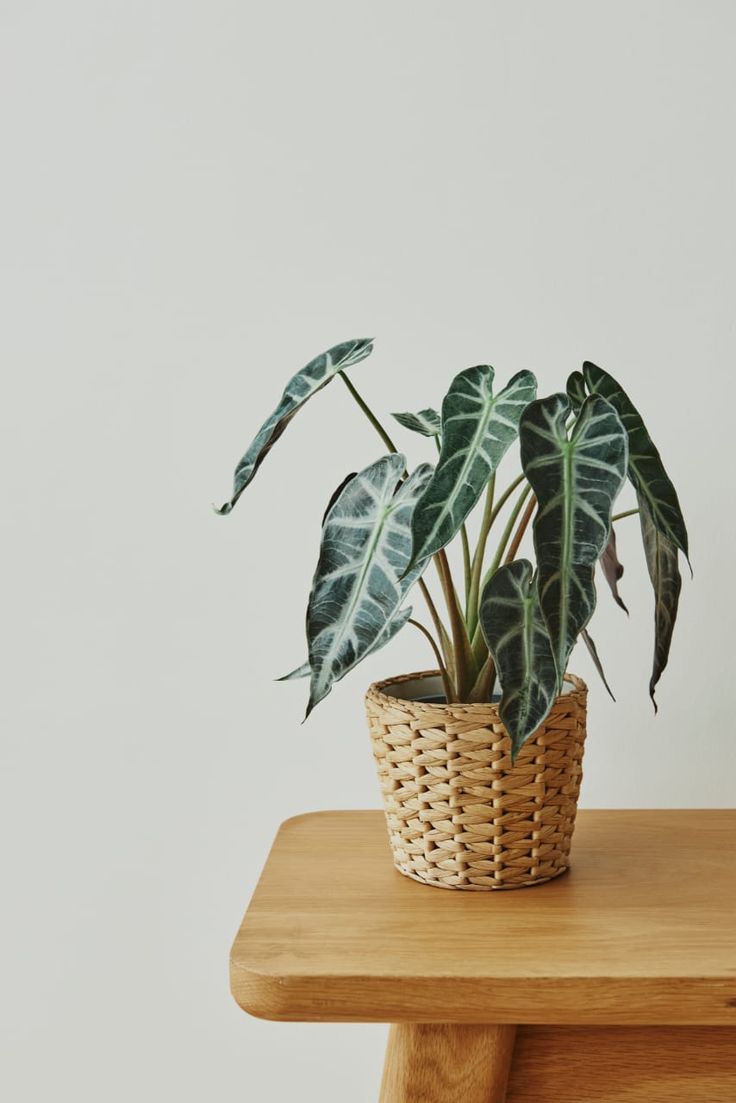

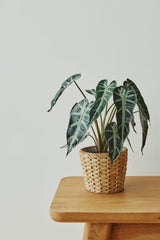
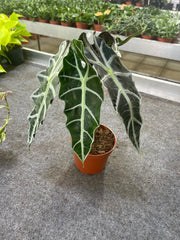
Alocasia Polly
- AED 80.00
- AED 80.00
- Unit price
- per
Couldn't load pickup availability
Description
xAlocasia Polly: The Elegant Shield Plant for Indoor Spaces
Alocasia Polly, often called the African Mask Plant or Elephant Ear, is a true showstopper among indoor plants. Its glossy, arrow-shaped leaves with striking white veins give it a bold, exotic charm. With the rising popularity of statement plants worldwide, Alocasia Polly has earned a well-deserved place in modern homes and the flourishing multi-billion-dollar houseplant industry.
5 Remarkable Benefits of Alocasia Polly Indoors
1. Air Purification
Like many houseplants, Alocasia Polly helps filter toxins from the air, promoting a fresher and healthier indoor environment.
2. Natural Aesthetic Boost
Its shield-like foliage brings dramatic elegance to interiors. Studies show greenery not only beautifies spaces but also reduces stress and uplifts mood.
3. Indoor Humidity Balance
Through transpiration, this plant adds moisture to the air—particularly valuable in dry or air-conditioned rooms—helping improve respiratory comfort.
4. Supports Mental Wellbeing
Tending to Alocasia Polly encourages mindfulness and relaxation. Interacting with plants has been linked to reduced anxiety, lower blood pressure, and enhanced overall wellness.
5. Collectible Value
Revered as a “statement plant,” Alocasia Polly is prized by collectors for its rare, tropical appeal, making it a centerpiece in any plant lover’s collection.
Challenges to Consider
-
Moisture Sensitivity – Needs consistent but cautious watering; overwatering can cause root rot.
-
Light Requirements – Prefers bright, indirect light; direct sunlight burns, while low light stunts growth.
-
Temperature Sensitivity – Thrives in warm indoor climates but dislikes cold drafts.
-
Pest Issues – Susceptible to spider mites and aphids, requiring regular checks.
-
Toxicity – Harmful if ingested by pets or children.
Frequently Asked Questions
1. Does Alocasia Polly purify air?
Yes—like many houseplants, it helps remove indoor pollutants.
2. Is it easy to care for?
Moderately. With proper watering and light, it rewards you with lush, vibrant growth.
3. Is it pet-safe?
No, it’s toxic to cats, dogs, and small children if eaten.
4. Can it survive in low light?
No, it requires bright, indirect light to thrive.
5. Does it need humidity?
Yes—higher humidity supports healthy leaves and prevents browning.
Final Verdict: Is Alocasia Polly Worth It?
Absolutely. If you’re looking for a striking, exotic houseplant that adds tropical elegance to your space, Alocasia Polly is a wonderful choice. While it demands attentive care, its dramatic beauty and wellness benefits make it a rewarding addition to any indoor garden.
Plant Care
xWatering
Water your plant once a week or when the soil starts to feel slightly dry on the surface. Keep the soil consistently moist, but be careful not to overwater, as this can cause brown spots and leaf drop. If the leaves become curly or dry, it's a sign that the plant needs water. It's best to water your plant in the early morning or late evening when the temperatures are cooler. Always check the soil before watering.Light
Provide bright indoor light or indirect sunlight for about 6 to 8 hours a day.Temperature
Maintain temperatures between 18°C and 24°C. Avoid exposing the plant to drafts, as these can cause undesirable temperature fluctuations. Mist the plant occasionally, about twice a week, to help maintain optimal humidity levels.Fertilizer
Apply liquid fertiliser every 15 days when the plant is actively growing. For best results, use Folikraft ready-to-use Indoor Plant Food.- Comodous:
- Comodous in tempor ullamcorper miaculis
- Mattis laoreet:
- Pellentesque vitae neque mollis urna mattis laoreet.
- Divamus de ametos:
- Divamus sit amet purus justo.
- Molestie:
- Proin molestie egestas orci ac suscipit risus posuere loremous
Related Products
Recently Viewed Products
- Choosing a selection results in a full page refresh.

